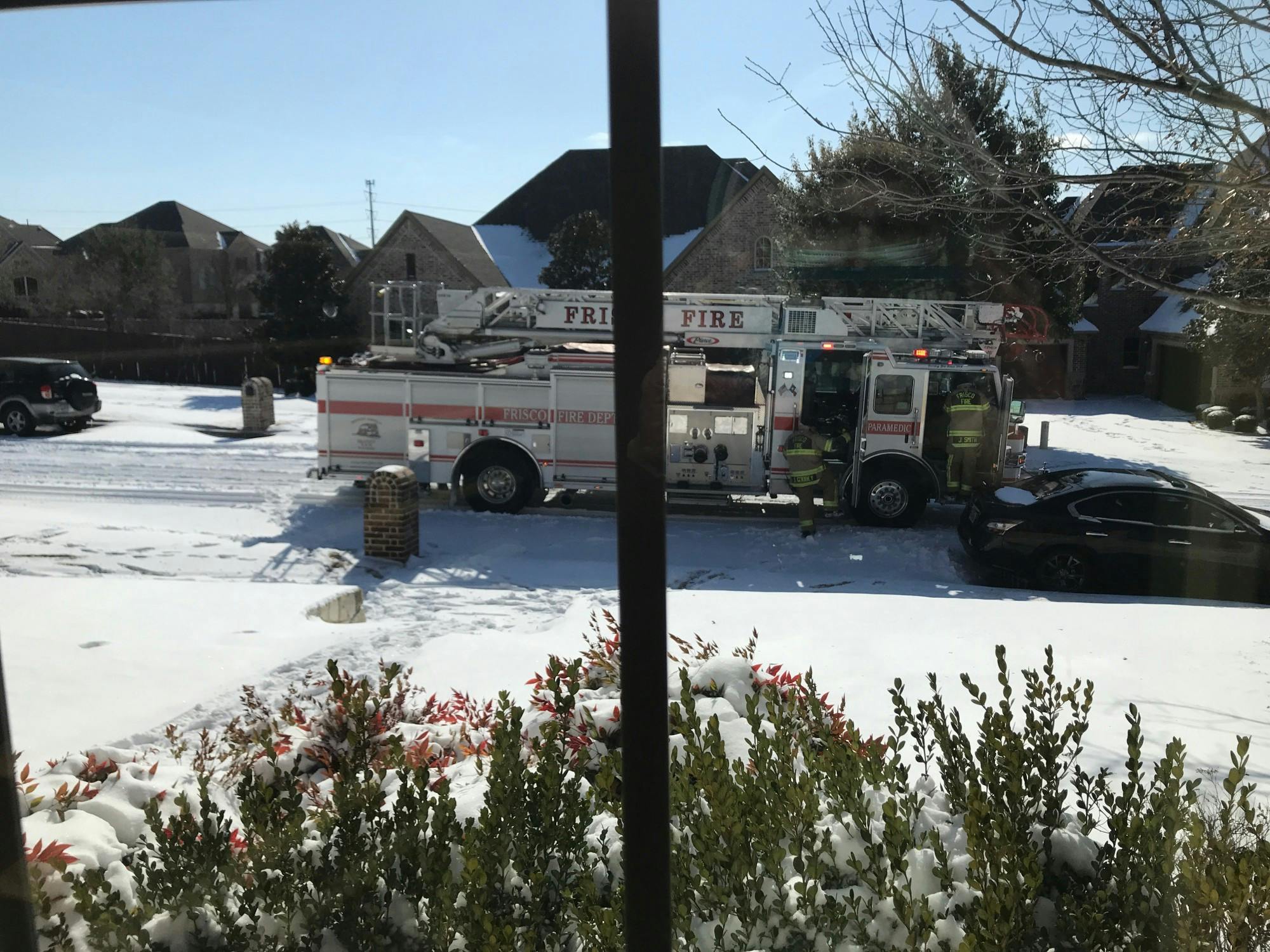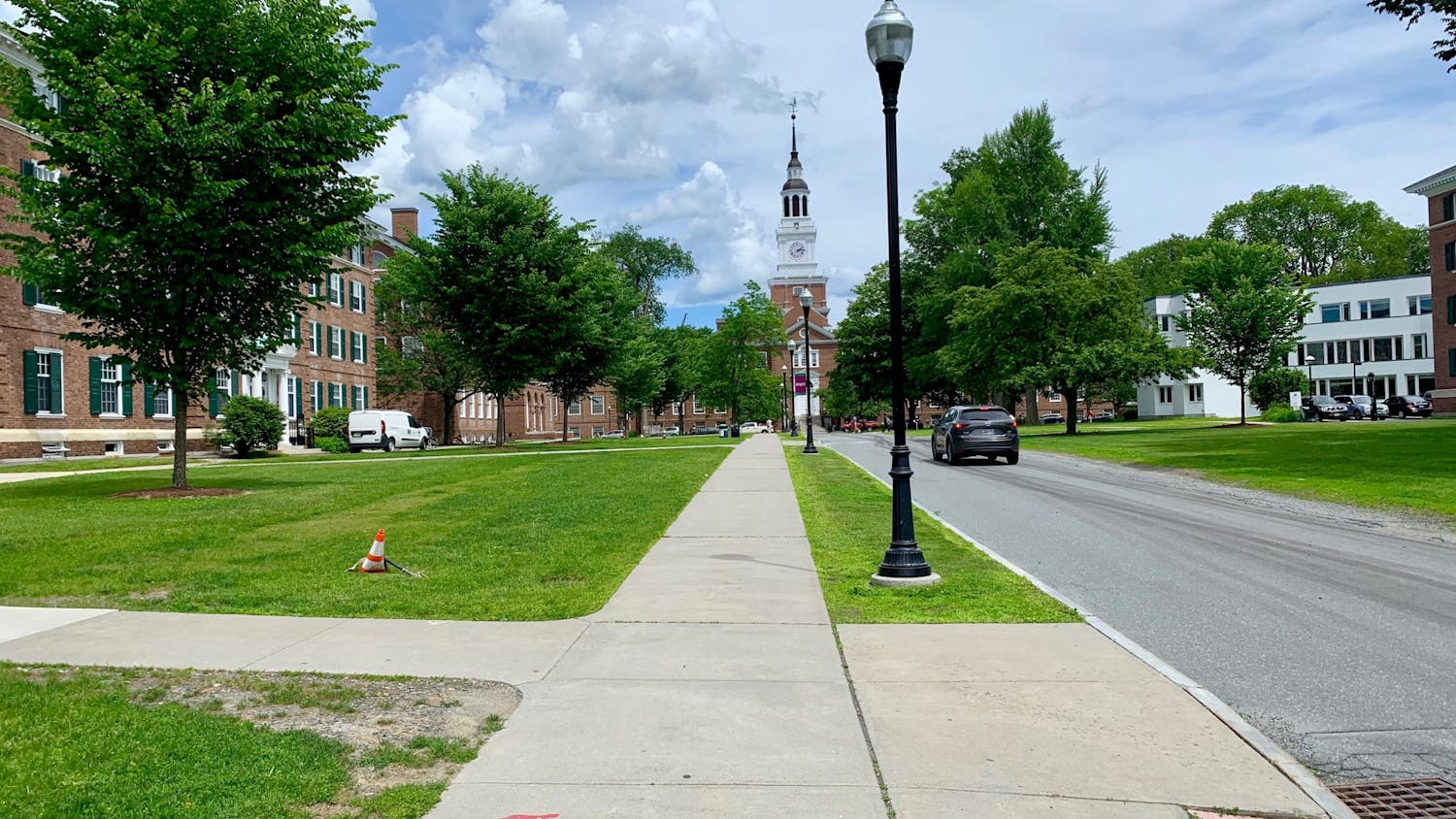Freak storms in mid-February left millions in Texas without power, and Dartmouth students and their families living in Texas were no exception. Over the last few weeks, students learning remotely from Texas have faced internet outages, frigid temperatures and boil-water advisories. Meanwhile, Texans on campus have felt the storm’s impacts through their families back home.
Ainsley Carter ’24 lost power in her Frisco, Texas home on Feb. 14 while watching television with her younger brother. At first, she said she did not think much of it, but throughout the week that followed, Carter and her family experienced rolling outages that lasted anywhere from 45 minutes to over three hours. The outages often left them without heat in the sub-zero temperatures.
“We almost completely lost heat for two days,” she said. A gas leak outside of Carter’s family’s house worsened the problem. While clearing ice off of equipment outside, she said that her family smelled gas and had to call the fire department twice.
Carter also said that the freezing temperatures and rolling outages left her family without refrigeration or a way to cook. She said they put their frozen food in a bucket in the snow outside to keep it cold, and they “refrigerated” other fresh food in the cold garage.
“We ended up losing a ton of food,” Carter said. “We were only eating peanut butter sandwiches for those three days because we couldn't microwave anything.”
Yumi Yoshiyasu ’24, who is living in Houston, said she experienced similar challenges with cooking during the outages. She said her father was forced to cook meals on a camping stove after their power went out.
“People were stockpiling food. … It was crazy,” she said, adding that “it was worse than Hurricane Harvey.” She also noted that many people lined up for the few restaurants that remained open.
Andy Trinh ’24 said that because he lives in a rural area outside of Caldwell, Texas, his internet connection is usually unstable, but the blackouts made it worse.
“My [internet service provider] would have rolling internet outages where they would turn it off for two, three hours and then turn it on for an hour [before turning] it off for two, three hours [again],” Trinh said.
Trinh said that the outages — sometimes power, sometimes internet and sometimes both — presented “logistical hurdles” to his academics.
“I’ve had a couple of quizzes in the past week where if you [lost] connection during the quiz, you would just get a zero,” he said. Trinh had to consult with his professor to come up with a plan should his internet cut out.
Helen Cao ’22, who is living in Katy, Texas, said that she did not get behind on schoolwork because she was able to leave home and take her classes at a family friend’s house when her power was out. She added that it was “scary to brace [for] the ice” during the 20-minute drive.
While Carter, Trinh and Yoshiyasu all missed class due to internet outages and frigid temperatures, Jonathan Lim ’23 felt the impacts of the storm differently. He was on campus while his family in Austin weathered out the storm.
“I was just trying to balance studying for [my midterm] and also calling back home,” Lim said. “... I also just wasn't able to do much just because of how far away I am.”
Lim said that the College should have done more to notify the community of the hardships Texan students had faced over the past two weeks.
“I wish the College at least put out some message of solidarity,” he said.
Carter agreed, noting that with “so many students impacted” it is “not irrational to ask” that the College comment on the disaster.
She said that letting each professor make up their own mind about academic accommodations and extensions “isn't really looking out for students and what's best for us.”
College spokesperson Diana Lawrence wrote in an email to The Dartmouth that “[a]s always, the decision whether to make adjustments in course expectations is up to the individual faculty member” and added that “[s]tudents should work with their course instructors to determine if it is appropriate to receive extensions for completing assignments or pursue an incomplete for a course.”
She also wrote that undergraduate deans are in touch weekly with the students to offer resources.
Since the storms, Cao, Carter, Trinh, Yoshiyasu and Lim’s family have all regained power, heat and internet access, as has the vast majority of the state.




